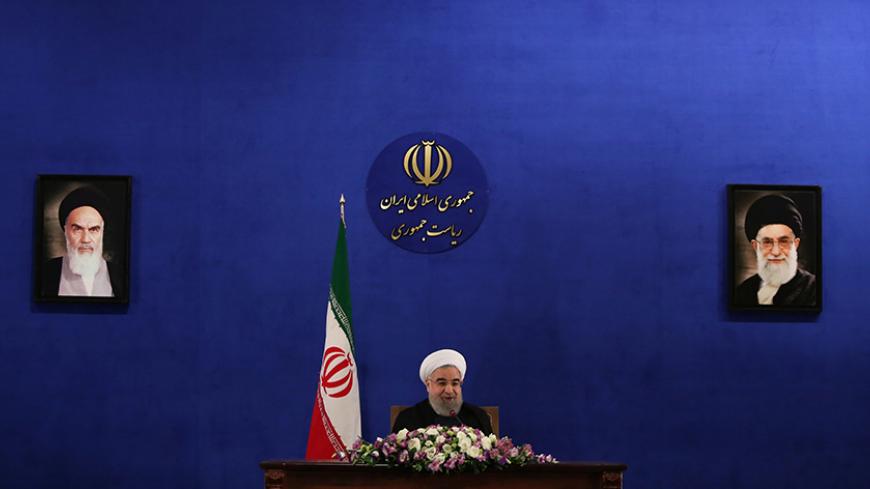Iranian President Hassan Rouhani held his first press conference May 22 following his re-election. Answering a question regarding the recent gathering of 55 countries in Saudi Arabia to coincide with the visit of US President Donald Trump, Rouhani described the summit as merely a “show” without any political value.
“To combat terrorism, giving the money of a nation to a superpower doesn’t solve any problems,” he said, referring to the massive $110 billion arms deal Saudi Arabia inked with the United States. “The Iraqi, Lebanese and Syrian nations stood against terrorists, and Iranian diplomats and advisers have been helping them,” he added.



